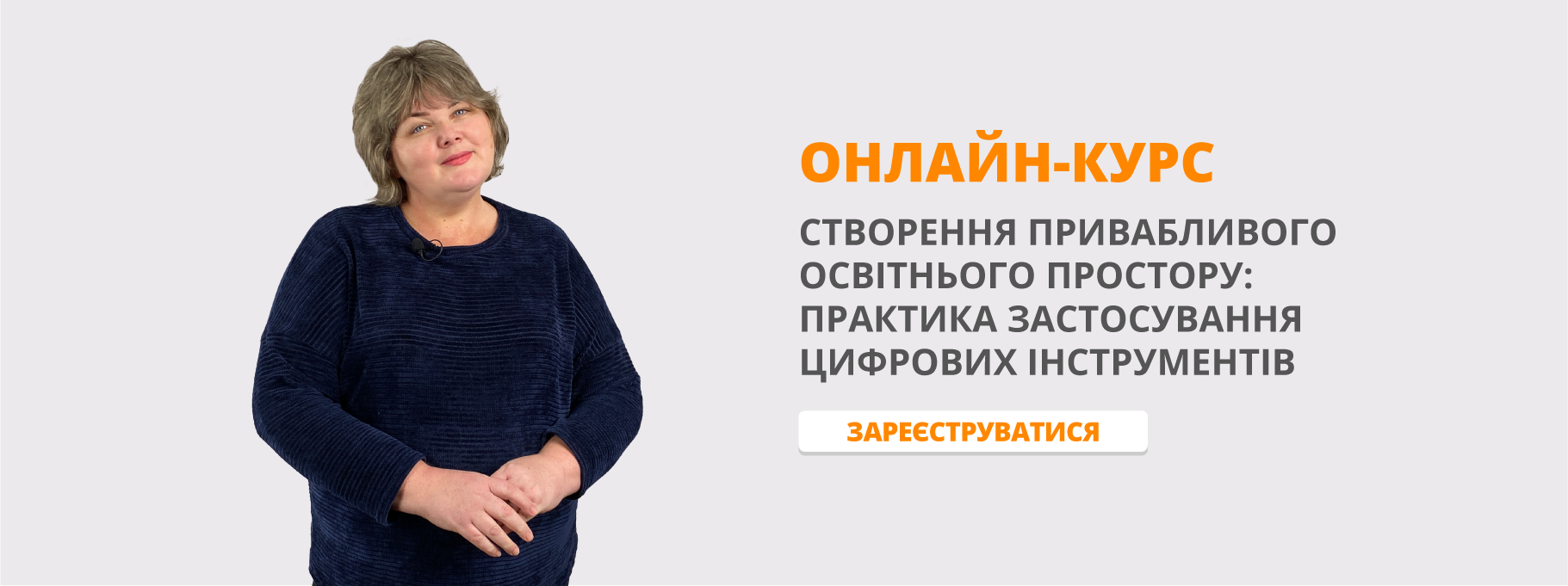English Рarty Taras Shevchenko and English Literature
Позакласний захід про Т. Шевченка та про зв'язок його творчості з англійською літературою, покликаний продемонструвати всесвітньовідомі переклади творів поета на англійську мову, розвивати почуття гордості за свою державу і її геніїв, продемонструвати красу і чарівність Шевченкового словаанглійськоюмовою, виховувати любов і повагу до спадщини, яку залишив нам великий Кобзар .
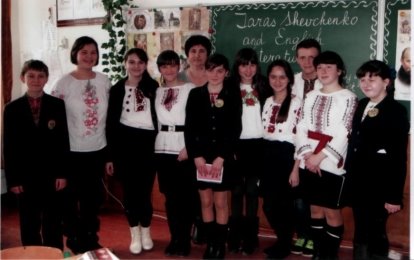
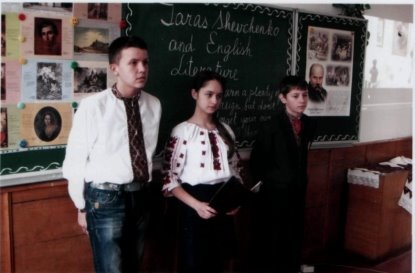
Костишин Наталія Василівна, вчитель англійської мови
Дзвиняцька ЗОШ І-ІІІ ступенів
с. Дзвиняч, Богородчанського району, Івано-Франківської області
English Рarty Taras Shevchenko and English Literature
Мета: ознайомити школярів з впливом поезії Т.Шевченка за кордоном, продемонструвати всесвітньовідомі переклади творів на англійську мову, розвивати почуття гордості за свою державу і її геніїв, продемонструвати красу і чарівність Шевченкового слова англійською мовою, виховувати любов і повагу до спадщини, яку залишив поет.
Обладнання: портрети поета, репродукції картин поета, фотографії пам’ятників в Україні і за кордоном, фотовиставка, вислови видатних людей про Кобзаря, мультимедійна дошка, проектор для демонстрації фільму «Музей Тараса Шевченка в Торонто»
Learn a plenty of foreign,
but don’t forget your own
Taras Shevchenko
На фоні співу птахів звучать слова
Teacher:
Years after his death in 1861, Ukraine's celebrated writer, painter, and national hero, Taras Shevchenko, continues to stir the country's consciousness with his fiery passion for "this land of ours that is not ours". Born into a serf family and orphaned as a teenager, Shevchenko spent much of his early life as an indentured servant until a master discovered his artistic talent. Apprenticed to a painter in St. Petersburg, Shevchenko's paintings caught the eye of others and admirers raised 2,500 rubles to purchase the young man's freedom. As a painter, Shevchenko gained attention for his portraiture and landscape yet, it was his portrayal of historical events that spoke to Ukraine's subservience to Tsarist Russia that brought the most notoriety.
Shevchenko's poetry holds a lasting place in the heart of Ukrainians, too. While Shevchenko's first book of poetry, Kobzar, was a nostalgic reflection of Ukraine, his writings soon shifted to an indictment of his country's Russian oppressors. A voice for Ukrainian independence, Shevchenko was later arrested, sentenced to ten years in Siberia, and sent into a frozen exile, pencil and paper ripped from his hands. Shevchenko managed to write and paint in secret and today, much of his work done during his years of exile is on display in museums in Kyiv and Kharkiv. In contemporary Ukraine, school children memorize Shevchenko's poems. Standing the test of time, Shevchenko's passionate words were even heard in the streets of Kiev amidst the heady days of the Orange Revolution - "Oh bury me, then rise ye up and break your heavy chains and water with the tyrants' blood the freedom you have gained" - securing his place in history once more.
Pupil 1:
Taras Shevchenko was born in the village of Moryntsi in Zvenyhorodka District, now Cherkassy region, on March 9, 1814, into a family of Hryhoriy and Kateryna Shevchenko. A year later, Shevchenko's parents moved to the village of Kyrylivka. Taras worked at occasional jobs as a shepherd, a wagoner and a farmhand and studied at school. Kyrylivka turned out to be the first encyclopaedia of life for the future poet. It was here that the heart for the first time the heroic story about the Haidamaks from his grandfather Ivan- a living witness of the unforgettable events. Later he immortalized his recollections in his poem "The Haidamaks"
Pupil 2:
After his wife's death, Hryhoriy married again but Shevchenko's stepmother failed to bring any kindness into his home.
Soon Taras was sent to a townman Hubsky, for schooling. Learning came easily to him and he quickly worked his way through the primer, but the teacher was cruel and time and again little Taras ran away from his teacher.
Having the strongest desire to draw he tried to find the teacher and this dream lead him to the landowner Engelgard
Pupil 3:
Before his death Hryhory Shevchenko made a remarkable prophecy concerning his son's future: "My son Taras does not need any of my property, he will not be an ordinary man; he will become either somebody really good or a terrible loafer; whatever I can leave him will either mean nothing to him or be of no help". After some years his master Engelgard took Taras to Petersburg where Shevchenko's talent was noticed and Karl Bryullow bought him out of serfdom.
There, in Petersburg, Taras Shevchenko was a student at the Academy of Arts, drew many beautiful pictures but his second and real calling was poetry.
Pupil 4:
In the North capital of Russia, Shevchenko met a lot of his compatriots, who showed his works to a famous Russian artist K. Brullow. The outstanding painter was so impressed by Shevchenko's pictures that decided to help the young artist. K. Bryullow painted a portrait of a wellknown poet and sold it in a lottery. The money was used to buy T. Shevchenko out from serfdom immediately after that. Taras was admitted to St. Petersburg Academy of Arts, where he studied painting and engraving. Shevchenko was awarded three silver medals for his works and by the end f his life he had become an Academician in engraving. His best paintings were the album of etchings "Picturesque Ukraine
Pupil 5:
Studying at the Academy Shevchenko found his second and main calling, his true passion-poetry. There, in St. Petersburg, Taras never forgot his Motherland and her sufferings under the yoke of serfdom. He wrote poems in Ukrainian and in 1840 published his first book of verse "Kobzar". He opened his sorrows of Ukrainian people . After graduating from the Academy, Shevchenko worked at the Kiev Archeological Commission.lt gave him a chance to travel a lot, to paint and to write poetry. At this time, he wrote his famous "Testament" in which he expressed his life-long hope to see his beloved Ukraine free.
Pupil 6:
TESTAMENT
When I'm dead, then bury me
In my beloved Ukraine,
My tomb upon a grave mound high
Amid the spreading plain,
So that the fields the boundless steppes;
The Dnieper's plunging shore,
My eyes could see, my ears could hear
The mighty river roar
When from Ukraine the Dnieper bears
Into the deep blue sea
The blood of foes, then will I leave
These hills and fertile fields.
I'll leave them all and fly away
To the abode of God,
And then I'll pray... But till that day
I nothing know of God.
Oh, bury me, then rise ye up,
And break your heavy chains,
And water with the tyrant's blood
The freedom you have gained.
And in the great new family,
The family of the free,
With softly spoken, kindly word
Remember also me.
T. Shevchenko
Pupil 7:
In 1846 in Kyiv Shevchenko joined the secret anti-serfdom society- the Cyril and Methodius Brotherhood, a year later he was arrested and exiled, he was forbidden to paint and write. But even in prison, which was in Orenburg, he continued writing on bits of paper. Among his poems of that period was his masterpiece "Beside the Hut the Cherries are in Bloom"
The group of girls performs the song
BESIDE THE HUT THE CHERRIES...
Beside the hut the cherries are in bloom,
And May bugs o'er them dance... the peasants from
The fields return with weary step.. .This late...
The young maids as they go sing songs.. .At home
The tables have been laid, and supper waits.
A family at the table sit without...
Dusk slowly comes the evening stars are out.
The daughter serves but seems to take too long;
The mother is impatient about to scold, when lo!-
A bird bursts into song.
The darkness cloaks the heavens overh
Beside the hut her little ones to bed
The mother puts, and then, afraid that that'll
Not asleep lies down nearby...
The world seems dead;
All's save for maids and nightingale.
Pupil 8:
In 1844 for his satirical poem "A Dream" Shevchenko was exiled to the Kasakh steppes for ten years with the prohibition of writing and painting. These were hard years for Shevchenko, he suffered much. And only in 1857 his friends helped him to return to Petersburg to continue to paint and write.
But, certainly, the most distinguishing, which elevates Shevchenko to the heights of world genius, is his talent. Yes, he loved Ukraine above all:
My poor Ukraine, I love her so
That for her sake I'd even curse God
And damn my soul.
Pupil 9:
He saw his people as part of a new free family of all the nations of the world, equal among the equal.
In 1959 Shevchenko was allowed to visit Ukraine and it turned out to be the last visit before his death on March 10, 1861. At first, he was buried in St, Petersburg, but his friends wanted to fulfill the poet's "Testament" and took his remains to Ukraine, where he was buried on a high hill over the Dnipro, near the town of Kaniv.
Pupil 10:
Shevchenko was not only a poet, he was also a beautiful artist. After his death, his works of art, manuscripts, documents, personal belongings and library fell into the hands of private collectors who were admires of his talent.
The famous Shevchenko's pictures are: "Kateryna", "Mary", "the Head of a Woman", some self-portraits.
Now we know that Shevchenko was also a fine singer. He was a very talented person. And now we have many his poems which are laid on music.
The group of girls performs the song
"The Mighty Dnieper Roars..."
Pupil 11:
835 works have been preserved to our time in original, partly in engravings and also in copies. There are also more than 270 lost works which haven't been found till nowadays. These are portraits, compositions on mythological, historical and everyday themes: landscapes and sceneries. They were carried out in the technique of oil writing, as well as by water-colours, sepias, Indian inks, Italian leading pencils. Only a small part of the works has the author's signature, inscriptions, dates. ( Presentation of Shevchenko's works)
The great Ukrainian writer was well-known with the achievements of the English culture. His admirable review, recollections, critical remarks testify in his letters, "Diary", and Russian stories. Taras Shevchenko had never been to England, but he was fond of English literature and art. The Ukrainian genius Shevchenko was fond of the most prominent English genius – William Shakespeare. The researchers note that Taras Shevchenko always kept Shakespeare verses in Russian translation with him.He didn't part with his writings for the last fourteen years of his life. The poet created two drawings to Shakespeare's tragedy "King Lear" in 1843.
Pupil 12:
The poet also showed his interest to the writings of the English novelists, such as D. Defoe, J. Swift, V. Scott, Ch. Dickens. But especially he appreciated D. Defoe and his novel "Robinson Crusoe". Shevchenko advised both children and adults to read this book. He sent the book to his niece and created a drawing "Robinson Crusoe"
Shevchenko knew the novels and stories by V. Scott very well too. The poet rendered V. Scott, his due for the accuracy of the historical description in his novels. But R. Burns' poetry was much closer to the Ukrainian artist. Shevchenko praised his poetry highly for it's national character, patriotism, love to common people. All his life Shevchenko had been interested in G. Byron's creative works. He often quoted his poems
Pupil 13:
The Ukrainian and Russian political emigrants were the first who acquainted the English readers with the creative works by T. Shevchenko. The first article about Shevchenko appeared in England in 1877 on May 5 in the literary weekly paper "All the Year Round", which was published by Ch. Dickens the Younger
Pupil 14:
E. L. Voynich published the collection of translations in 1911 in London. In 1914 in the English periodical, new articles about Shevchenko were published. Many new translators appeared at that time too. The important place among them belongs to
P. Selver. He did many translations in prose and verse.
In the 20s- 30ss of the XX century the London Scientific three- monthly magazine of Slavonic studies "The Slavonic Review" played an important role to acquaint the English public with the Ukrainian literature. The article "Taras Shevchenko" by Ivan Franko was published there in 1924.
Pupil 15:
In 1961 in London some Shevchenko's writings were issued in the original and had been rendered into English. The most significant Shevchenko's evenings were held in London and Nottingham the same year. The evenings' programmes were very interesting.
Many English newspapers, such as "The Times", "The Daily Telegraph" inserted many articles about T. Shevchenko, and held the memory of the great Ukrainian poet in Great Britain.
Nowadays Taras Shevchenko’s works and his name are well known to the world. Even far away in the outer space there is an asteroid – Kobzar, which was named after the outstanding Ukrainian poet and artist. The Shevchenko’ poetry is translated even to Chinese and to more than to twenty languages of the nations living in India.
Teacher:There is no such a city, town or even a village in Ukraine, which don’t have its street, park named after the Ukrainian genius. There are almost 128 monuments to Taras Shevchenko outside our country. Since today Cambridge also has its Taras Shevchenko Way.
In his times, Shevchenko didn’t get a chance to visit the motherland of his favourite poet and playwright. He had never been to Cambridge as well. Due to lecturers and students of Cambridge University as well as to all those who support the Ukrainian Studies at Cambridge University – the name and works of Taras Shevchenko are settled in one of the most prestigious Universities of Great Britain.
As Gafur Gulom, the Uzbek poet said about Shevchenko, he is a faithful and genius son of the Ukrainian people, but he belongs to all the peoples notwithstanding of the language they speak and the part of the world they live. This is so because he praised the high and noble ideals, which are immortal and which express the best thoughts and aspirations of all the peoples of the world. The unveiling of the Taras Shevchenko Way in Cambridge is another recognition of significance of the Shevchenko’s heritage for the world.
And now the film “Tatas Shevcenko ‘s Museum In Toronto”is to your attention
Presentation of the film “Tatas Shevcenko ‘s Museum In Toronto”
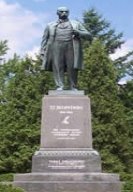
Monument to Taras Shevchenko in Toronto
DO YOU KNOW THAT:
T. Shevchenko was born on March 9, 1814 and died on March 10, 1861?
there were five children in Hryhory and Katerynam Shevchenko's family: Mykyta,Kateryna, Taras, Yaryna and Yosyp?
.. ..Taras' father was literate and quite well read for a man of his station in life?
... ."Kobzar" was published for the first time in 1840?
in 1862 the first translation of the Testament
The first translations were made into Russian and Polish?
Shevchenko's heritage of pictorial art alone numbers over 1,100 works
......his tomb in Kaniv has been visited by more than 10 million his admirers from 133 countries? .... over four hundred monuments have been unveiled to him throughout the world?
Quiz!
- When and where was Taras Shevchenko born? (March 9, 1814 village of Moryntsi)
- When was his first book published?(1840 Kobzar)
- When was poem “Haidamaki” published? (1841)
- When did Shevchenko receive his certificate of freedom (April 22, 1838)
- How old was Taras Shevchenko when he was exiled? (33 )
- Where is the poet’s grave? (on a Dniper bank in Kaniv)
- How many self-portraits did Shevchenko paint? (About 50 self-portraits)
- When did he paint his first self-portrait? (in 1840 in oil)
Thank you for attention. Have a nice day!
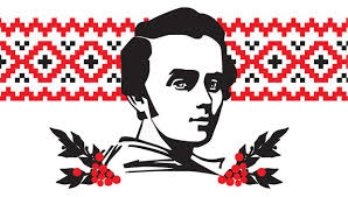
Додаток
My Testament
Translated by E.L.Voinich
(Dec.25, 1845. Pereiaslav)
Dig my grave and raise my barrow
By the Dnieper-side
In Ukraine, my old land,
A fair land and wide.
I will lie and watch the cornfields,
Listen through the years
To the river voices roaring,
Roaring in my ears.
When I hear the call
Of the racing flood,
I will leave them all,
Fields and hills; and force my way
Right up to the Throne
Where God sits alone;
Clasp his feet and pray…
But till that day
What is God to me?
Bury me; be done with me,
Raise and break your chain,
Water your new liberty
With blood for rain.
Then in the mighty family
Of all men that are free,
May be, sometimes, very softly
A Dream Extract
Translated by John Weir (1952-1964)
We fly… I look – the dawn arrives,
The sky’s edge bursts ablaze;
In shady glades the nightingales
Sing out the new sun’s praise.
The breezes softly, lightly wake
The steppe lands from their dreams;
In the lash valleys, by the lakes
The willows shimmer green.
The orchards, heavy laden, bow;
The poplars stand at ease
Like sentinels when all is well,
And gossip with the fields.
And all about, the whole land gleams
With nature’s warmest hues,
Bedecked with blossoms, dressed in green.
And bathed in drops of dew
And greets the morning sun…
There’s no beginning to all this,
Of ending, too there’s none!
There’s no one who could either gild
Or blotch this beauty-land…
And all of this…
My aching heart,
My soul, why are you sad?
My poor, my desolated soul,
Why do you vainly weep?
Whom is it you pity? Alas, can’t you see?
And cannot you hear how the multitudes cry?
Beside the house, the cherry's flowering,
Above the trees the May bugs hum,
The ploughmen from the furrows come,
The girls all wander homeward, singing
,And mothers wait the meal for them.
Beside the house, a family supper,
Above, the evening star appears,
The daughter serves the dishes here ;
It's useless to advise her, mother,
The nightingale won't let her hear.
Beside the house, the mother lulls
The little children for the night,
Then she, too, settles at their side.
And all is still... Only the girls
And nightingales disturb the quiet
[May, 1847St. Petersburg. In the Fortress.]
From In the Fortress. VIIITranslated by Vera Rich
An eveningA cherry grove beside the cottage stands,
The beetles hum above the cherry-trees,
The ploughmen homeward plod to take their ease,
Young women likewise come in singing bands,
Mothers avait them all, with food to please.
The family beside the cottage eats ;
The evening star is rising in the sky ;
The daughter helps the supper tasks to ply ;
Words of advice the mother's mind repeats
But songs of nightingales her words outvie
.Her little folks beside the cottage small
The mother puts to rest in slumber deep,
And she herself beside them falls asleep
.Peace now prevails. But the young women all
And the sweet nightingale no silence keep.
Translated by C.H. Andrusyshen and Watson Kirkconnell
Day comes and goes, night comes and goes...
Sinking your head in hands clasped tight,
You wonder why there still comes no
Apostle of wisdom, truth and right.
5.XI. [1860 St. Petersburg.]
Translated by Vera Rich
Why weighs the heart heavy ?
Why drags life so dreary ?
Why is the heart weeping and sobbing and wailing
As a child cries from hunger ?
Heart, heavy and weary,
What do you long for ?
Why are you ailing ?
Are you longing for food or for drink or repose ?
Slumber, my heart, for eternity sleeping,
Uncovered ans shattered...
Let hateful peopleRage on...
O my heart, let your eyes gently close !..
13.XI. 1844St. Petersburg.
Translated by Vera Rich
“When I was 13».
My thirteenth birthday soon would come.
I herded lambkins on the lea.
Was it the magic of the sun,
Or what was it affected me?
I felt with joy all overcome
As though in heaven...
The time for lunch had long passed by,
And still among the weeds I lay
And prayed to God... I know not why
It was so pleasant then to pray
For me, an orphan peasant boy,
Or why such bliss so filled me there?
The sky seemed bright, the village fair,
The very lambs seemed to rejoice!
The sun's rays warmed but did not sear!
But not for long
the sun stayed kind,
Not long in bliss I prayed...
It turned into a ball of fire
And set the world ablaze.
As though just wakened up, I gaze:
The hamlet's drab and poor,
And God's blue heavens - even they
Are glorious no more.
I look upon the lambs I tend -
Those lambs are not my own!
I eye the hut wherein I dwell -
I do not have a home!
God gave me nothing, naught at all!...
I bowed my head and wept,
Such bitter tears... And then a lass
Who had been sorting hemp
Not far from there, down by the path,
Heard my lament and came
Across the field to comfort me;
She spoke a soothing phrase
And gently kissed my tear-wet face...
It was as though the sun had smiled,
As though all things on earth were mine,
My own... The orchards, fields and groves!...
And, laughing merrily the while,
The master's lambs to drink we drove.
How nauseating!... Yet, when I
Recall those days, my heart is sore
That there my brief life's span the Lord
Did not grant me to live and die.
There, plowing, I'd have passed away,
With ignorance my life-long lot,
I'd not an outcast be today,
I'd not be cursing Man and God!...
“It doesn`t touch me».
Pupil: It does not touch me, not a whit
If I live in Ukraine or no,
If men recall me, or forget,
Lost as I am, in foreign snow, -
Touches me not the slightest whit.
Captive, to manhood I have grown
In strangers’ homes, and by my own
Unmourned, a weeping captive still,
I’ll die, all that is mine, I will
Bear off; let not a trace remain
In our glorious Ukraine.
Our own land – yet a strangers’ rather.
And speaking with his son, no father
Will recall, nor bit him: Pray,
Pray, son! Of old, for our Ukraine,
They tortured all his life away.
It does not touch me, not a whit,
Whether that son will pray or no…
But it does touch me deep if knave,
Evil rogues lull our Ukraine
Asleep, and only in the flames
Let her, all plundered, wake again…
That touches me with deepest pain.
“Dream»
Pupil: We fly… I look – the dawn arrives,
The sky’s edge bursts ablaze;
In shady glades the nightingales
Sing out the new sun’s praise.
The breezes softly, lightly wake
The steppe lands from their dreams;
In the lash valleys, by the lakes
The willows shimmer green.
The orchards, heavy laden, bow;
The poplars stand at ease
Like sentinels when all is well,
And gossip with the fields.
And all about, the whole land gleams
With nature’s warmest hues,
Bedecked with blossoms, dressed in green.
And bathed in drops of dew
And greets the morning sun…
There’s no beginning to all this,
Of ending, too there’s none!
There’s no one who could either gild
Or blotch this beauty-land…
And all of this…
My aching heart,
My soul, why are you sad?
My poor, my desolated soul,
Why do you vainly weep?
Whom is it you pity? Alas, can’t you see?
And cannot you hear how the multitudes cry?
The Mighty Dnieper Roads and Bellow.
Pupil The mighty Dnieper roars and bellows,
The wind in anger howls and raves,
Down to the ground it bends the willows
And mountain-high lifts up the waves.
The pale-faced moon picked out this moment
To peek out from behind the cloud,
Like a canoe upon the ocean
It first tips up, and then dips down.
The cocks have not proclaimed the morning,
There’s not a sound as yet of man,
The owls in glades call out their warnings,
And ash-trees creak and creak again.


про публікацію авторської розробки
Додати розробку
